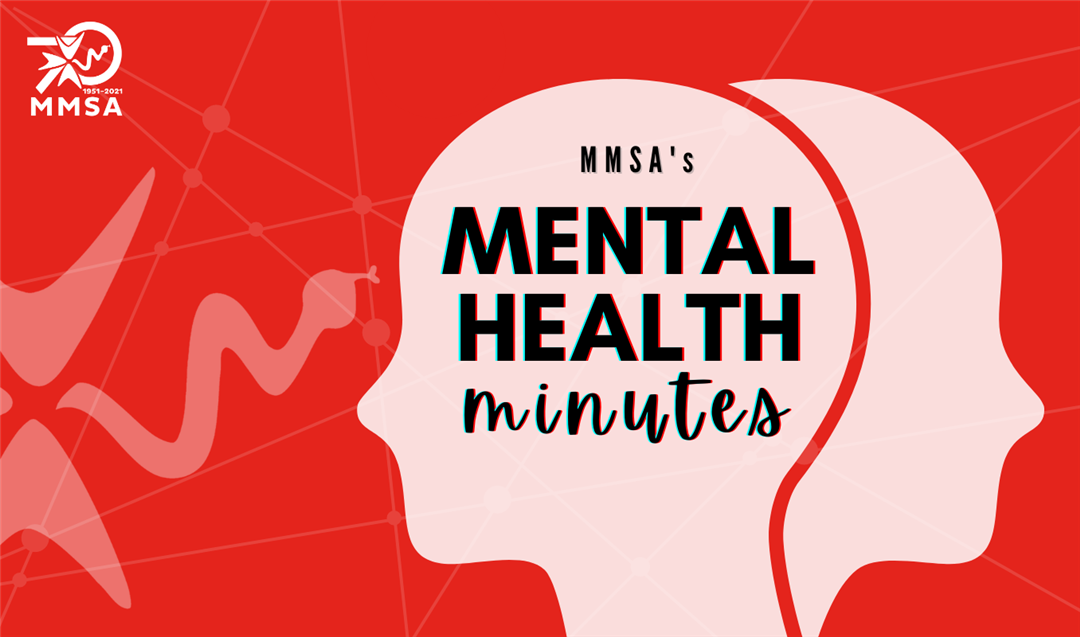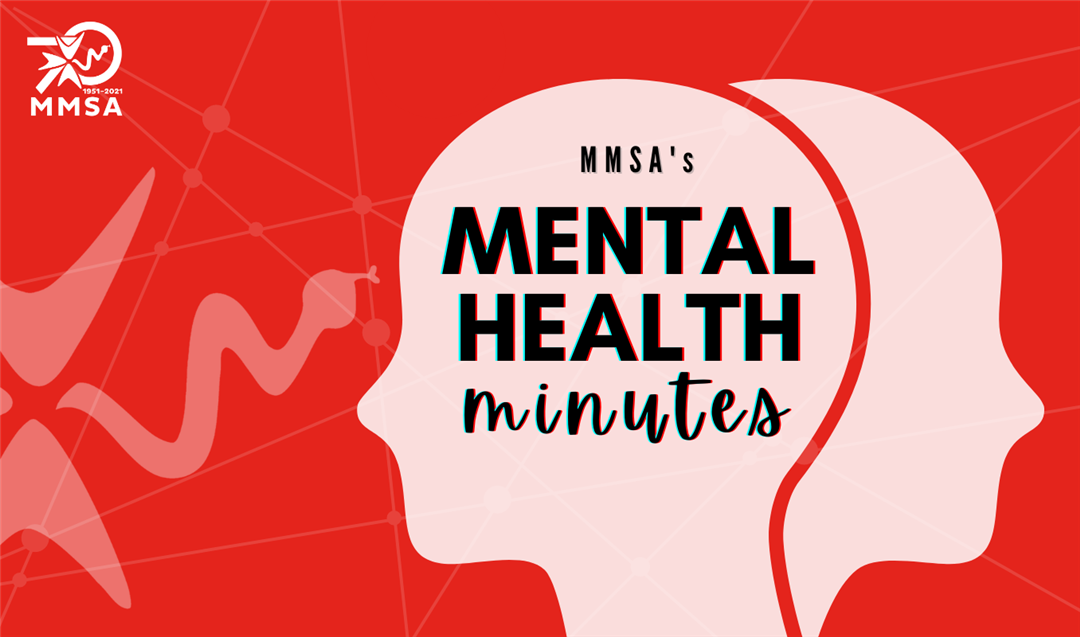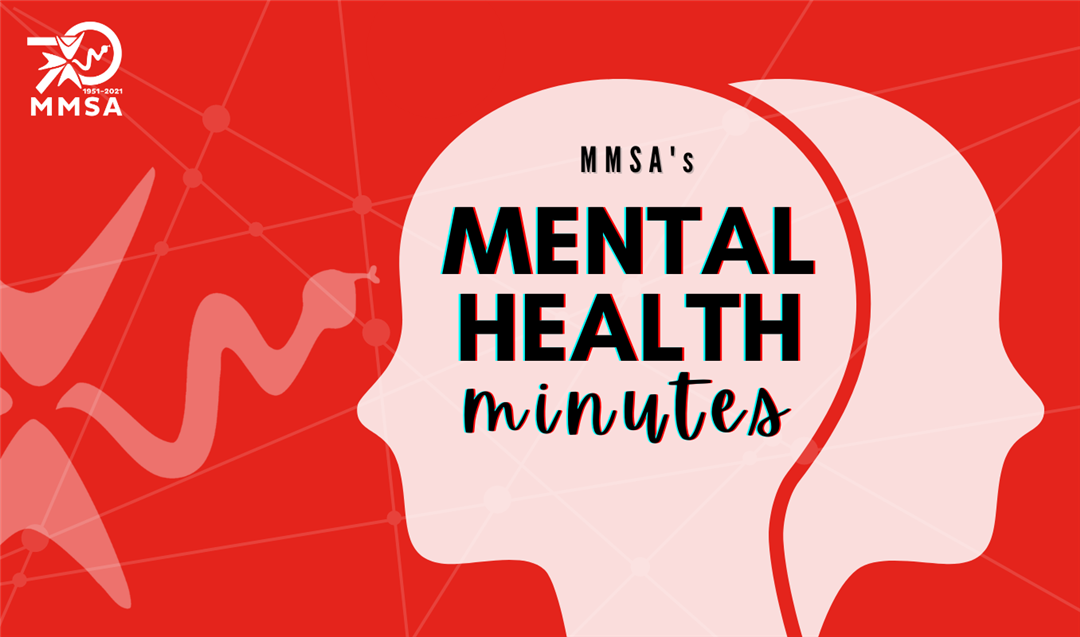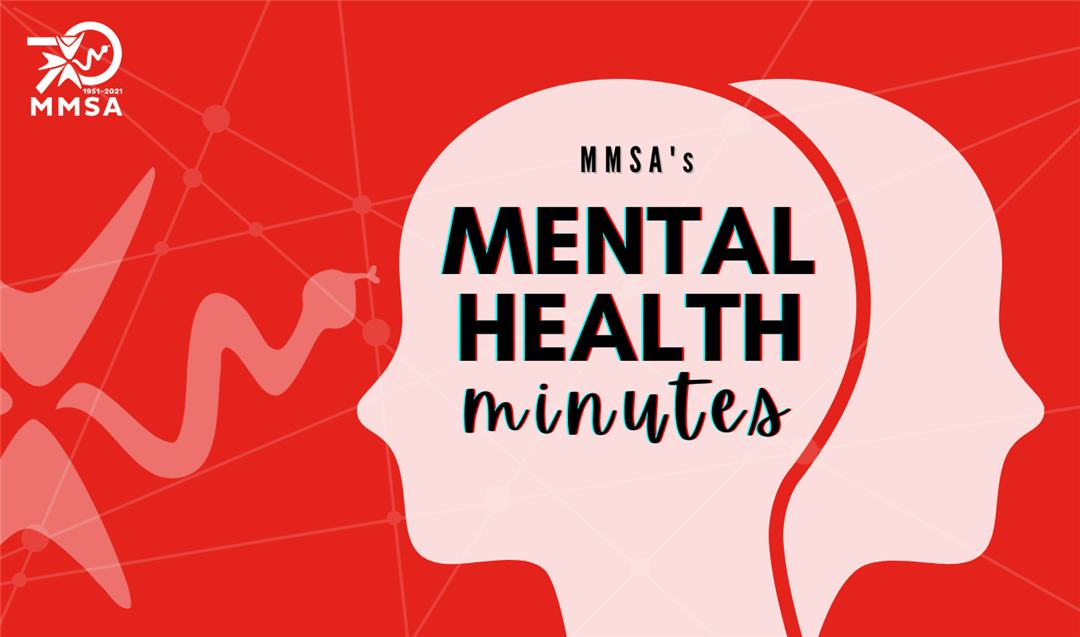Mental Health Minutes - Coping with Change
What is ‘change’?
Change, also referred to as transition, is defined as a sudden discontinuity with previous life events. Coping capacities learned throughout life resurface in phases of change in order to help the person through the stages of letting go and moving on to take hold of a new experience, one’s past experiences thus often render a transition phase to be rather short. (1)
What is the effect of change on the person experiencing it?
The most dominant consequence of many life transitions is a feeling of loss, which is experienced not only in cases of ‘forced’ change, but also in transitions actively chosen by a person in an attempt to ward off boredom and promote excitement. (1) Change might stimulate a vulnerable experience that requires one to be challenged. For the most part, people might feel disturbed and uneasy by such unfamiliarity. A person going through a transition process, and thus sustaining this discomfort and loss, should be able to recognise that they are going through a grieving process and require mourning to move past this stage. Positive episodes of change may also promote an indistinct sense of loss, as in the case of a job promotion, or marriage. This is due to the fact that these experiences still challenge the person by taking them away from what they know and are comfortable with and forcing them to adjust and adapt to their new situation. (1)
Transitions involving relationships, comfortable surroundings, and decreased security in familiarity, often accompany a perception of loss in what these tangible elements may represent to the person experiencing the change. These elements often represent important values of self-identity, and therefore lack of support may precipitate a drop in self-esteem. (2)
Change may be difficult, but it is also vital for growth and development as a person. Without change, you are guaranteed to remain the way you are and do things the way you have always done them. For some, this is fulfilling enough, but for many, striving for change gives meaning and satisfaction. Ultimately, change goes hand in hand with achieving any goals and aspirations, and allows for opportunity and adventure. (3)
An individual’s perception of their transition together with their coping capabilities are what determine the degree of angst they experience as well as their success in dealing with their life transition. These determining factors are referred to as ‘mediating variables’, as they consider the variety of attitudes that affect the efficacy of people’s coping skills. (1)
What is meant by ‘the coping process’?
On attempting to cope with any form of transition, one should concentrate on the way they are managing the stress caused by the change, rather than focusing on the stress arousal itself. Not only does effective coping rectify stress, but ineffective coping amplifies stress with its repercussions. (4)
What effective coping methods are useful for someone struggling with change?
It is impossible to discuss all effective coping means. Here are some coping skills to keep in mind and challenge oneself to explore in difficult times of change.
- Response to the Transition
The interpretation of the event is the first crucial step to be able to overcome the change. It is important to accept that problematic situations, although sometimes feel extraordinary, are a normal part of every one’s life. One must also appreciate their own variety of strengths that help them to cope effectively. Adopting these beliefs would lead the individual to regain an element of self-control and assurance, rather than feeling overwhelmed. If one perceives themselves as powerless and helpless, they would feel defeated by the change and often avoid adopting a proactive response to the change. It is essential to hold a perspective of being capable to cope with problematic situations. Impulsivity and passivity should both be discouraged to allow oneself to evaluate the problem situation rationally and establish a proactive coping response.
- External Support Systems
Establishing the right social support system begins by deducing one’s emotional needs, followed by a search for suitable people to form a support network. This skill does not end there, and involves intentionally making an effort to spend time with people who provide the support one requires. In the case of an individual who lacks a local support network, for example due to living abroad, this skill would entail seeking formal community groups for emotional support - these would consist of people who are sharing similar experiences. Involving oneself in various interest groups, where people share a common interest such as a sport or religion, could also help by providing support as a secondary benefit. Simply having a social network is not enough if it is inadequate and incomplete. Adequate support should not be expected to come from a few close people; expanding social networks should be encouraged so as to include a variety of people.
- Internal Support Systems
Internal supportive messages are just as important as external ones during a transition. Tuning in with oneself to acknowledge the transition being experienced allows one to remember past experiences in their current decisions and objectives. However, one must keep in mind that self-instructions could also lead to nonsensical self-destructive behaviour. Thus, this skill involves reconstructing self-criticism into supportive internal dialogue.
- Diminishing Stress
Stress is considered a normal adaptation to change. The psychological effects may materialise as either anxiety or as satisfaction - a person going through a transition is thus tasked with finding the ideal amount of stress to spark energy and elation whilst maintaining tranquility. One ought-to aim to seek a balance between the two, rather than struggle to try and eliminate stress completely. The following are some strategies for stress management, which are useful especially when distress hinders effective coping:
- Setting priorities: Decide what must get done and what can wait. Learn to reject new tasks if you feel that they might weigh you down.
- Acknowledge your accomplishments at the end of the day, and not what you have not managed to do.
- Mindfulness meditation: Just 10 minutes a day is enough to promote awareness, enhance attention, and decrease rumination.
- Deep breathing exercises
- Progressive muscle relaxation: This involves tensing and then relaxing particular muscle groups one at a time. This exercise helps to lower overall tension and stress levels, and encourages relaxation when you are feeling anxious.(5)
- Implementing Change
Experiencing a personal change is most often followed by a reevaluation of one’s way of life, leading to a desire to respond constructively. Decisions taken following a transition are typically overwhelming, as they tend to involve the risk of sustaining further loss. The hardship associated with these decisions may encourage one’s desire to escape the situation. Through poor decisions emerge poor outcomes - reflected in feelings of self-dissatisfaction and incapability. Consequently, rational decision-making skills allow for effective coping under stressful circumstances.(2)
If I am struggling to cope with change, who can I reach out to for help?
Students studying at the University of Malta have the benefit of free counselling sessions offered on campus by the Health and Wellness Clinic.
Furthermore, if you are not comfortable talking to someone in person, Richmond Foundation has a Freephone Helpline, which is 1770. This helpline is available for 24 hours, 7 days a week. Richmond Foundation also has a website that allows you to talk to someone anonymously, as well as the Kellimni.com website.
These services are beneficial for people who feel that their mental health is under pressure, and one should not be afraid to seek help.
In Malta, the mental health services are free of charge. The centres or clinics that offer their services to mental health care are located in Cospicua, Floriana, Gzira, Mosta, Mtarfa, Paola and Qormi. It is recommended that one calls the respective clinic for an appointment.
|
Health Centre |
Contact Number |
Day of the Week |
Schedule |
|
Bormla |
23972330/ 21662088 |
Monday to Friday |
7:30am-5:30pm On Fridays till 3pm |
|
Gzira |
21344766/ 21337245 |
Tuesday and Wednesdays |
7:30am-5pm |
|
Kirkop |
21681267 |
Tuesdays, Wednesdays and Thursdays |
|
|
Mosta |
21424969 |
Monday to Thursday |
7:30am-5pm |
|
Qormi |
21441317/ 21440170 |
Monday to Friday |
7:30am-5pm On Fridays till 3pm |
|
Floriana |
21220454/ 21250015 |
Monday to Friday |
7:30am-3pm |
|
Mtarfa |
21456750/ 21454917/ 21456758 |
Monday to Friday |
7:30am-3pm |
|
Paola |
21821566/ 21821562 |
Monday to Friday |
7:30am-3pm |
References
Mental Health Services. (n.d.). Retrieved March 22, 2021, from https://deputyprimeminister.gov.mt/en/phc/Pages/Services/Mental-Health-Services/Mental-Health-Services.aspx
- Brammer LM. Coping with life transitions. International Journal for the Advancement of Counselling. 1992 Dec;15(4):239–53.
- Brammer LM, Abrego PJ. Intervention Strategies for Coping with Transitions. Couns Psychol. 1981 Jun;9(2):19–36.
- Personal Growth: Five Steps to Positive Life Change (and the Big Payoff!) - Dr. Jim Taylor [Internet]. [cited 2021 Mar 29]. Available from: https://www.drjimtaylor.com/4.0/personal-growth-five-steps-to-positive-life-change-and-the-big-payoff/
- Lazarus RS. The Role of Coping in the Emotions and How Coping Changes over the Life Course. Handbook of emotion, adult development, and aging. Elsevier; 1996. p. 289–306.
- Teens and Stress: Practical Coping Skills | Psychology Today [Internet]. [cited 2021 Mar 29]. Available from: https://www.psychologytoday.com/us/blog/the-race-good-health/201501/teens-and-stress-practical-coping-skills
- Mental Health Services [Internet]. [cited 2021 Mar 22]. Available from: https://deputyprimeminister.gov.mt/en/phc/Pages/Services/Mental-Health-Services/Mental-Health-Services.aspx
Written by Sophie Mifsud (MD3) – SCORP Mental Health Coordinator
Reviewed by Dr. Daniel Vella Fondacaro







